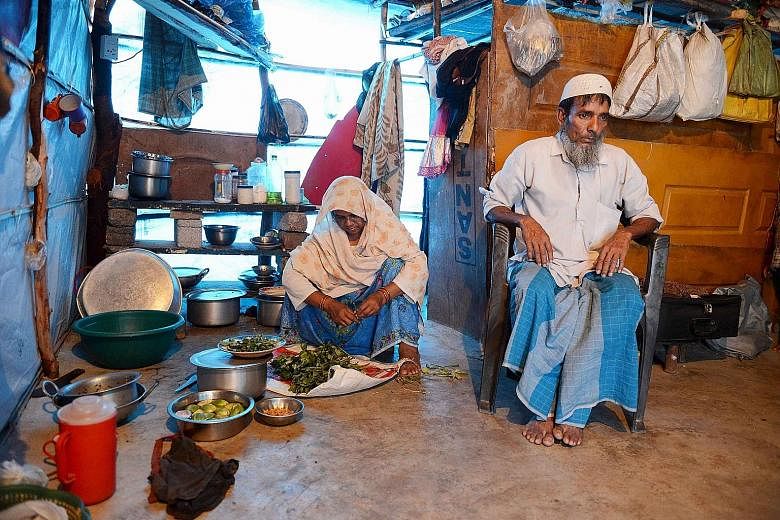What's in a name? Plenty, according to the thousands of Buddhists in Myanmar's Rakhine state who marched through the streets on Sunday to protest against the new government's decision to refer to Rohingya Muslims as the "Muslim communities in Rakhine".
Naypyitaw's bid to lower the temperatures on this incendiary topic is raising hackles in both camps.
Hardline groups who see the Rohingya as illegal "Bengali" migrants suspect that this is a ploy to fuse their belonging to the state. Rohingya groups argue the term erases their ethnic identity and replaces it with a religious one which does not offer much better protection, given resurgent nationalist sentiments in the Buddhist-majority country.
A United Nations (UN) report last month highlighted the "systemic discrimination" and tight restrictions on the movements of Rakhine's Muslims - displaced by communal violence in 2012 - which were having a "severe impact" on their access to healthcare and other opportunities. More than 100,000 are still living under desperate conditions in makeshift camps, and tens of thousands have fled to other countries, sometimes straight into the arms of human traffickers.
The Rohingya, who number about one million, form the largest group among Myanmar's Muslims. Unlike the Kaman Muslims, who also live in the western Rakhine state, the Rohingya are not recognised among Myanmar's 135 official ethnic groups and are stateless. Meanwhile, some Buddhists in the impoverished state are wary that global attention on the Rohingya would reduce their own access to aid.
De facto Myanmar leader Aung San Suu Kyi's request for "space" to deal with this issue has so far only been publicly heeded by the European Union. Amid concerns that her Cabinet may put the Rohingya issue on the back-burner while it wrestles with other pressing issues inherited from its army-backed predecessor, UN special rapporteur on Myanmar Yanghee Lee, in a press conference last Friday, urged the government to make tackling the institutionalised discrimination against Muslims "an urgent priority".
"The continuing restrictions on the freedom of movement of the Rohingya and Kaman communities cannot be justified on any grounds of security or maintaining stability," Professor Lee said, adding that religious tension was "pervasive" across Myanmar society.
On the same day that she addressed the press in Yangon, a mob torched a mosque in the northern Kachin state, the second such attack in just over a week.
Under these conditions, observers do not think that calling the Rohingya the "Muslim communities in Rakhine" would help.
"Both sides are angry with the term," lawyer and former political prisoner Thein Than Oo told The Straits Times. The government is better off setting up a national conference to deal with the issue transparently, he said.
Mr Kyaw Min, who heads the Democracy and Human Rights Party representing Rohingya interests, alleged that there is "an ulterior motive... to erase our identity".
The term might work if the government declares "Muslims" as a group native to Myanmar, he told The Straits Times. "Otherwise, we will arrive at the same problem."

